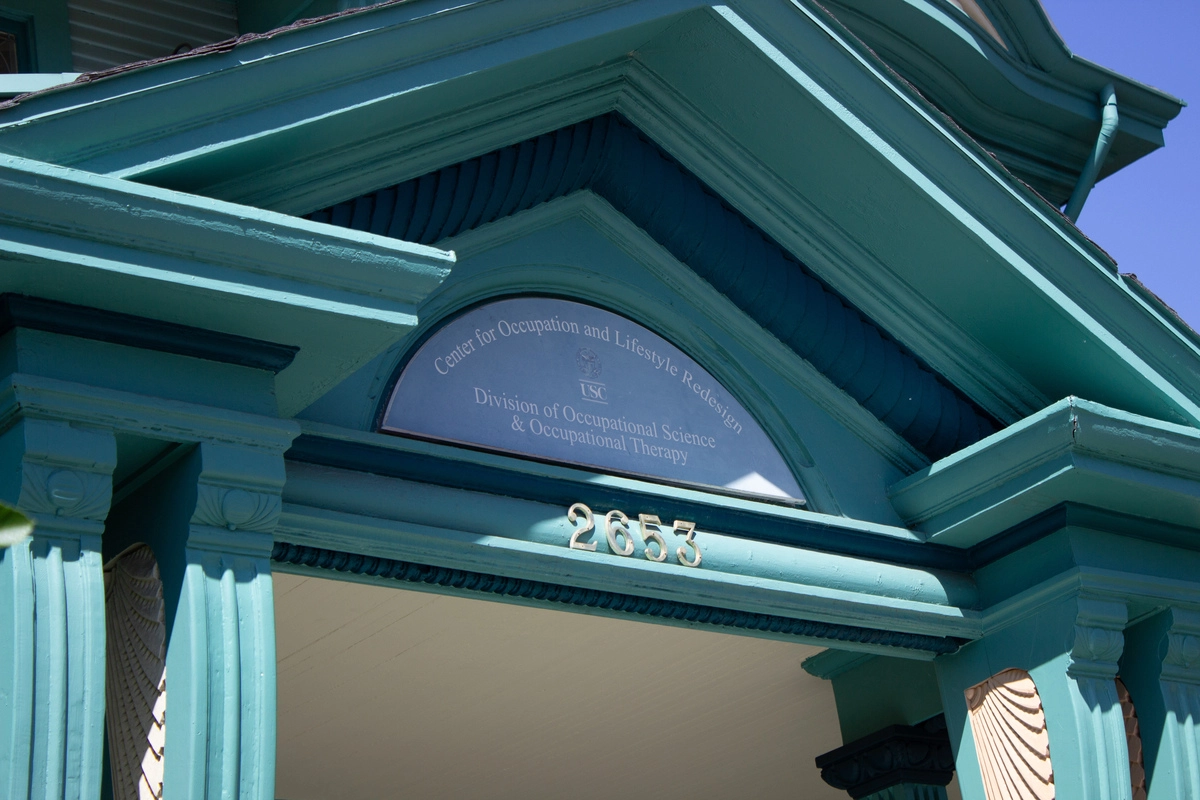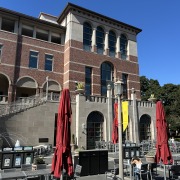Exam weeks — or perhaps college in general — seem to be conducive to an irregular sleep schedule.
Balancing course assignments, club meetings and part-time jobs, students may find that there doesn’t seem to be enough time for everything — and that unmanaged stress often manifests in physical and mental health.
Daily headlines, sent straight to your inbox.
Subscribe to our newsletter to keep up with the latest at and around USC.
The Chan Division of Occupational Science and Occupational Therapy has proposed a program called “Lifestyle Redesign.”
“Lifestyle Redesign is an intervention framework … [for] developing health-promoting habits and routines,” said Chantelle Rice Collins, associate director for Lifestyle Redesign Clinical Programs and Services. “Certain things are part of a healthy lifestyle — healthy eating, physical activity, managing your stress, getting adequate sleep, managing your time and your schedule, being social — but how the individual goes about doing that is very unique.”
The program started as preventive occupational therapy — researching occupational science interventions in healthy aging — and has since been implemented to support health-promoting lifestyle changes.
“In an OT evaluation, it’s an opportunity for someone to sit down and report on ‘how am I occupying my time from the moment I wake up in the morning to the moment I’m going to bed? What am I doing?’” Rice Collins said.
Chan has expanded programs for college students, including a Lifestyle Redesign for College Students clinic and undergraduate courses in the occupational therapy department. Occupational therapists help college students create healthy routines and practice time management, self-care and healthy habits.
“The college student … [Lifestyle Redesign program includes] time management, stress management, ergonomics, coping skills,” said Ashley Uyeshiro Simon, an associate professor of clinical occupational therapy. “OT 101 Caring for Your Self … was the first course created based on the Lifestyle Redesign program.”
Undergraduate courses based on the research framework include “Caring for Your Self: Engaging in Healthy Habits and Routines,” “Lifestyle Design: Introduction to Occupational Therapy” and “Creating a Sustainable Lifestyle.” Curricula based on the research center’s intervention program help students learn health behavior fundamentals, including restorative sleep, healthy relationships, exercise and self-identity.
Rice Collins directs the USC Occupational Therapy Faculty Practice — a clinic implementing Lifestyle Redesign interventions for clients living with chronic health conditions. Occupational therapists assist clients with health education for the clinical setting, manage conditions to reduce symptom flares and improve quality of life.
Chan’s clinics rely on the program’s interdisciplinary occupational science research centers. The Lifestyle Redesign for Chronic Conditions lab designs occupational therapy interventions to support clients living with chronic health conditions.
“There’s this one study I often cite: To do everything that has been recommended for people to stay healthy with diabetes, it would take about two hours a day — which most people don’t have … just to devote to managing their illness,” said Beth Pyatak, the director of Lifestyle Redesign for Chronic Conditions. “It’s about being strategic [about] the most important things to do and how … to make those fit into your routine.”
LRCC researches occupational science through a health-equity lens: considering structural barriers, social determinants of health and existing inequities when designing OT interventions. Recent programs have used telehealth to support patients with diabetes, implemented occupational therapy in primary care and addressed health inequities in underserved communities.
“We try to take the big picture of someone’s life, like what are all of their roles, responsibilities, tasks,” Pyatak said, “and then [consider how to] fit in your disease management activities.”
Pyatak researches occupational therapy interventions for clients living with chronic conditions, including type 1 and 2 diabetes. Applying occupational science and translational medicine, her studies evaluate the efficacy of health behavior interventions in disease prognosis.
Health behavior interventions can help manage stress, alleviate symptoms and reduce systemic reactions for patients with inflammatory conditions. Occupational science research has relied upon health-promoting behaviors to reduce stressors and improve coping skills.
In clinical practice, Uyeshiro Simon has helped clients with chronic illnesses using Lifestyle Redesign, with health benefits evident in measured biomarkers. Her work in occupational science has supported patients living with chronic conditions, including multiple sclerosis.
“The way that you live your life can also impact your disease prognosis. For folks who have MS who eat good anti-inflammatory diets, exercise often and keep their body calm … [there is less] chronic stress on their nervous system,” Uyeshiro Simon said. “When they get their MRIs, they have fewer plaques in their scans.”
The occupational science program offers Lifestyle Redesign for chronic health conditions, dysautonomia, mental health, sleep disorders, oncology, neurological conditions and cardiovascular health. Interventions help clients learn to manage medications, treatments, diet, allergies and environmental triggers.
Chronic health conditions often cause chronic pain, cognitive health effects and emotional stress, requiring patients to make adjustments to their existing lifestyles. Clinical occupational therapists strive to provide support to clients in managing conditions through the Lifestyle Redesign program.
Chan’s innovative programs rely upon an interdisciplinary approach — applying occupational science and medical research, education and client-provider communication, and community support — to promote lifestyle redesign.
“We define occupations as meaningful activities that occupy your time,” Uyeshiro Simon said. “When you step back into your own life, you [can ask yourself] ‘What are the meaningful occupations that contribute to or pull away from my sense of health, well-being [and] happiness?’”
The Lifestyle Redesign program offers clients weekly sessions with an occupational therapist in-person or via telehealth. Students interested in an evaluation with the occupational therapy program can schedule an appointment via mySHR.










